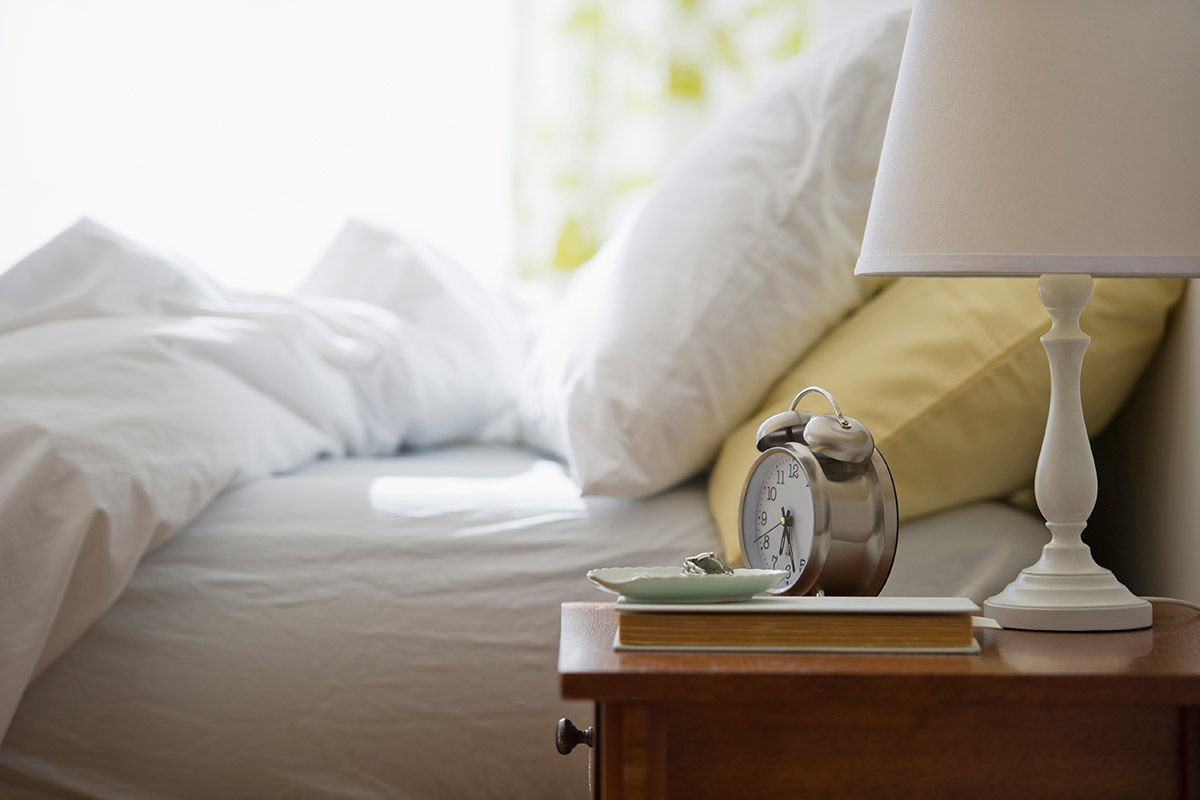Types of insomnia, tests and treatments

A poll by the National Sleep Foundation discovered that more than 1 in 3 adults don’t get enough sleep, which is considered about 7 to 9 hours for adults under 64 years old.1 It’s important that you get proper rest to get through busy days and to let the body recover and stay strong.
If you find that you’re tossing and turning all night, read on to find out how to combat common insomnia struggles and get a good night’s rest.
Types of insomnia
There are two types of insomnia. Short-term insomnia can last up to 3 months and is often related to a stressful event or period. Chronic insomnia impacts about 10% of people.2 Someone with chronic insomnia has sleep issues at least 3 nights a week for 3 months or longer, explains Funke Afolabi-Brown, M.D., a sleep doctor and founder of Restful Sleep MD. Both forms can lead to trouble falling asleep, difficulty staying asleep or waking up too early.
Dr. Afolabi-Brown adds that insomnia negatively impacts overall health. Symptoms of poor sleep may include:
- Increased fatigue
- Increased risk of anxiety and depression
- Memory problems
- Decreased work or school performance
- Increased health conditions such as hypertension
- Reduced quality of life
What causes insomnia?
It will come as no surprise that stress and anxiety are major culprits. (And worrying about not being able to sleep can also keep you from drifting off.) That said, other risk factors include everyday behaviors such as drinking caffeine later in the day or spending time on electronics before bed. While insomnia can contribute to poor sleep, not having good sleep habits can also lead to insufficient sleep.
“In this situation, we typically don’t consider it insomnia. We call it inadequate sleep hygiene. Typically, these kinds of sleep problems improve once we establish healthy sleep habits,” says Dr. Afolabi-Brown.
Lifestyle changes that can help with insomnia
There are several tips for helping you fall asleep with ease each night. Start with good sleep habits. According to the CDC, the pillars of good sleep hygiene include:3
- Be consistent. Go to bed and get up at the same time every day, even on the weekends.
- Create a relaxing sleep environment. Your bedroom should be quiet, dark and at a comfortable temperature.
- Avoid electronic devices. Keep TVs, computers and smartphones out of your bedroom.
- Watch what you eat and drink. Stay away from big meals, caffeine (if you’re sensitive to its effects) and alcohol before bedtime.
- Exercise. Moving during the day can help you more easily fall asleep at night.
Dr. Winter adds that having a loud sleep partner or pets on the bed can also disrupt sleep. If your partner snores, earplugs can help, as can white noise or music. With pets, as cozy as it is to have them snuggled up with you, it’s better for your sleep if you don’t let them onto the bed.
If stress is causing your insomnia, take steps to manage it. Relaxation methods such as yoga, tai chi and meditation can help with insomnia, as can breathing exercises. You could also try using a mobile app for sleep and meditation.
Medical and therapeutic treatments for insomnia
If insomnia persists and leaves you feeling sluggish every day, Dr. Afolabi-Brown recommends speaking to your doctor or seeing a specialist with expertise in the following:
Cognitive behavioral therapy (CBT) for insomnia
“A sleep specialist can work with you to examine the behaviors and thought processes that are limiting sleep, as well as provide effective strategies to improve your sleep,” she explains.
Medications for insomnia
Although most doctors prefer to try other methods of dealing with insomnia, they may turn to medication to help you get some rest.
Prescription sleeping pills may help you fall asleep easier or stay asleep longer — or both. The risks/side effects and benefits of sleeping pills can vary. You and your doctor would need to work together to find the right prescription medicine for you.
Sleep studies
Your doctor may also recommend that you participate in a sleep study to diagnose any underlying medical problems.
The bottom line on insomnia
A solid night’s sleep is worth taking the time to maintain good sleep hygiene. Reach out to your doctor if you’re struggling. They may be able to help you determine if your insomnia is caused by medical issues. And they may recommend medications and therapies that can help.